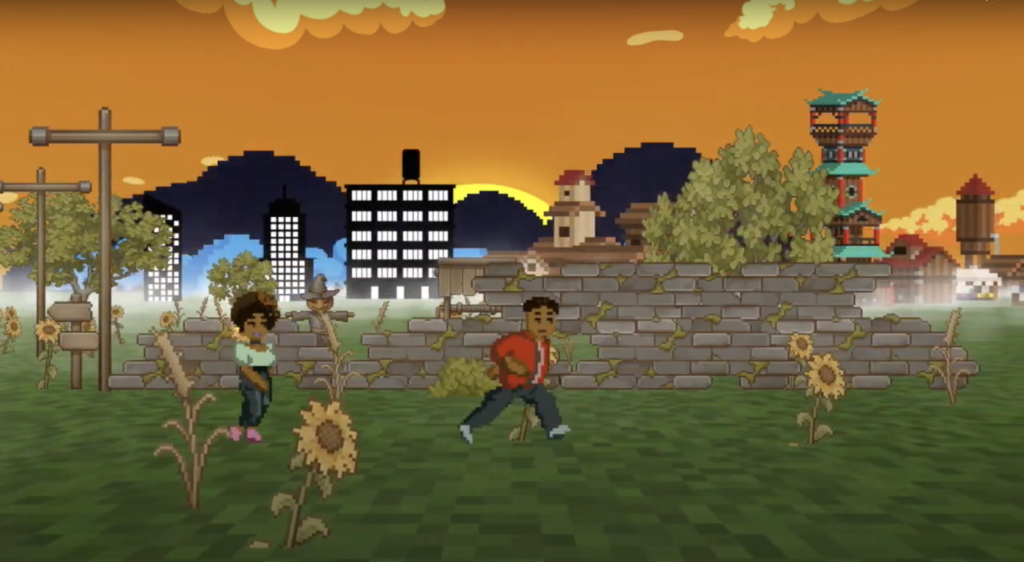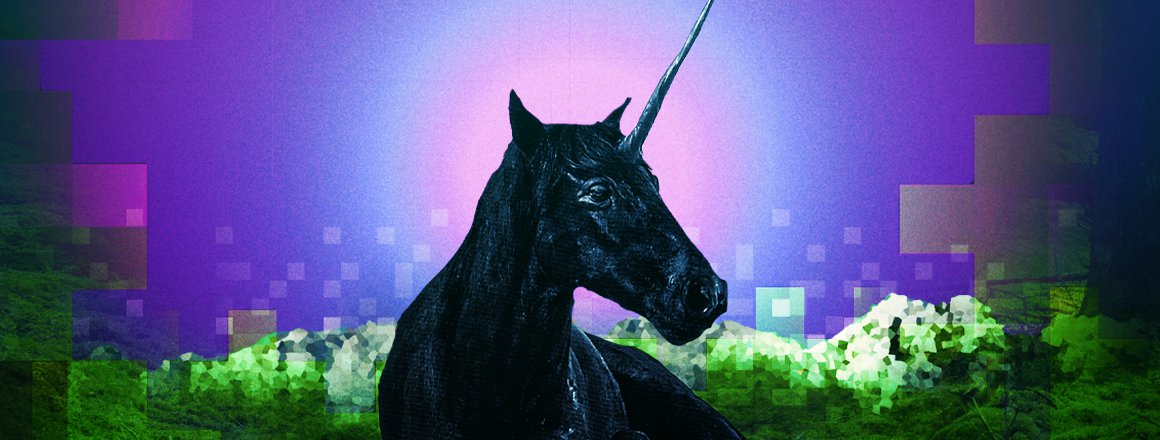When Darrel Alejandro Holnes sat down to interview a friend several years ago, The Civilians’ production of Black Feminist Video Game could not be further from what he imagined would come of it. The interview was originally a part of a separate project – a series of short plays about the Black experience in Berlin – but upon hearing his friend speak on his experiences, that path changed. “It sent me on a journey into my own childhood, my own love of video games, my own relationship with my mother, the many ways I have tried and failed to be a Black feminist, and the many reasons I keep trying to do better and help those around me do better as well,” Holnes said of the interview.
Black Feminist Video Game, originally written as a stage-play as part of The Civilians’ R&D Group, follows a biracial teenager with autism as he attempts to win back his crush with the help of the titular 90s game, Black Feminist Video Game. Far from the original idea Darrel had, but as Darrel’s friend described his experience growing up with autism, it seemed the natural course. And now, further still from the original vision: the play has been rewritten as a livestreamed, interactive online experience.
The reading of the play performed as a part of the R&D Group’s Findings Series was the first to adapt the show for the screen, as the beginnings of the pandemic forced the reading series online. “This gave me the opportunity to work with Victoria Collado who had recently relocated to Miami and together we came up with creative ways to adapt the story to the Zoom platform,” Darrel explains. As the process continued, “we got together with filmmaker Kiran Chitanvis to brainstorm ways we could continue to push the boundaries of dramatic form in the digital space. From then on, I started thinking of the play in cinematic terms, which was really helpful when navigating the digital space, which can sometimes lend to cinematic expectations of video. Then I had the idea to lean-in to the video element even more by adapting some scenes to various video-based social media platforms like Twitch and to add an actual video game that audiences could help Jonas, the main character, play with his friend, Sabine. Victoria grew this idea even more along with newer members of the team that later came aboard.” Those later member of the team include Ché Rose and Jocelyn Short of Cookout Games, the creators of the actual video game contained within the show, who we interviewed last week.

With Ché and Jocelyn’s game design and a new medium to explore, Black Feminist Video Game quickly grew into an entirely new creation: an interactive, deeply online piece of theater meant to mimic the interaction between streamers on Twitch and their audiences, a type of online entertainment that has only boomed during the pandemic. This shift to writing for digital theater, as it turns out, was exactly what the play needed. “I think the play has grown exponentially by my leaning into what social media, digital video, and video games have to offer. I teach my students that theater will never die, even during a pandemic, as long as we theatermakers are willing to claim any space as our playhouse. During the pandemic, my playhouse became my Nintendo Switch, Zoom, Skype, FaceTime, Facebook Live, Instagram, TikTok, and Twitch. I’m excited to welcome an audience into that playhouse and to then tackle the new challenge of bringing this digital play to the in-person stage in the near future.”
As exciting as the new use of the digital medium is, though, Darrel notes that that isn’t what he’s most excited for audiences to experience. Instead, the experience he intends for them is not dissimilar from the one he had while conducting that first interview in Berlin. “I’m excited for the audience to step into a world that centers a neurodiverse character struggling with the things we all struggle with – being more compassionate and understanding towards our fellow human beings,” Darrel says. “It’s hard to undo the patriarchy within us while living in a society that is still so deeply patriarchal; it’s especially hard for men and boys. It can be hard for some of us to be our best feminist, but we must try. I’m excited for an audience to witness this journey, I hope it motivates them to keep their head in the game. I hope it motivates them to try. I wrote this play as a way of speaking publicly on the importance of Black feminism because, as Audre Lorde said, ‘the machine will try to grind you into dust, whether or not we speak.’ I hope this play is a space where audiences hear Lorde, Patricia Hills Collins, Kimberly Crenshaw, and the voices of other Black feminists and womanists whose scholarship has helped me think through and keep thinking about how I can be my best feminist each and every day.”
Six live performances of Black Feminist Video Game will stream at 8 PM EST from Tuesday, April 27 through Sunday, May 2. On-demand viewing will be available from May 3–9, 2021. Tickets are $10, and are available here.
To learn more about The Civilians and to access exclusive discounts to shows, join our email list at TheCivilians.org.
Author
-

Phoebe Corde (she/her) is a dramaturg, writer, and illustrator from Westport, Connecticut, specializing in stories of the strange, magical, and otherworldly. She is currently Resident Dramaturg at The Civilians, where she is director of their artistic development group, the R&D Group, and is a member of the creative board of directors at Off-Brand Opera. Her dramaturgical work has been seen on Broadway and Off-Broadway stages, including The Public Theater, Vineyard Theatre, A.R.T., Paper Mill Playhouse, Oregon Shakespeare Festival, Ensemble Studio Theatre, and 59E59.
View all posts









